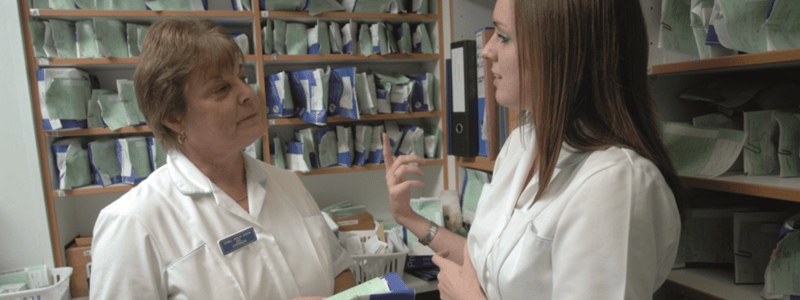What should you do if you suspect abuse?
If you suspect an adult is being abused or neglected, then doing nothing is not an option however the process for adults is different to the process for children.
For consent to be valid it must be voluntary and informed and the person consenting must have the capacity to make the decision. this means:
- The decision to either consent or not to consent must be made by the person themselves and must not be influenced by pressure from medical staff, friends or family (voluntary).
- The person must be given all of the information in terms of what the intervention involves, including the benefits and risks, whether there are reasonable alternatives and what will happen if the intervention does not go ahead (informed).
- The person must be capable of giving consent, which means they understand the information given to them, and they can use it to make an informed decision (has capacity).
You should discuss any concerns you have with your pharmacist or designated safeguarding lead (DSL), they will then decide if they need further advice from the Safeguarding Adult Board. If the adult is in immediate danger it may be necessary to contact the police.
space
Note: It is your responsibility to report your suspicions but not to investigate. Any action you take could have an impact on any formal investigation that takes place.
✔ Do
- ✔ Talk to the person in a confidential area of the pharmacy, consider your own safety and follow your chaperone policy if appropriate.
- ✔ Reassure the person that they are doing the right thing and that if they or someone on their behalf makes contact with safeguarding their welfare will not be affected.
- ✔ Allow the person to describe their concerns in their own words.
- ✔ Seek consent to act.
- ✔ Ask open question so you don’t lead the conversation.
- ✔ Document what the person tells you in their own words and the date and time they tell you.
- ✔ Discuss your concerns with the pharmacist/designated safeguarding lead.
- ✔ Keep confidential information secure.
- ✔ Follow your pharmacy’s safeguarding policy.
✖ Don't
- ✖ Place yourself or anyone else in danger.
- ✖ Be judgemental.
- ✖ Make promises you cannot keep such as telling the person you will keep the information to yourself and not tell anyone.
- ✖ Make decisions on behalf of the person.
- ✖ Ask detailed or probing questions.
- ✖ Paraphrase or ask the person to sign the document (this has legal ramifications).
- ✖ Discuss the incident with anyone apart from the pharmacist or designated safeguarding lead especially not the person alleged to have caused harm.
- ✖ Leave detailed information on answer machines or where it can be seen e.g. on counter tops.
✖ Conduct your own investigation including:
-
✖ Interfere with, or contaminate potential evidence following physical or sexual assault, for example, by washing, sheet changing, teeth cleaning etc
✖ Questioning witnesses except to obtain basic information
✖ Attempt to influence or intimidate potential witnesses
-

